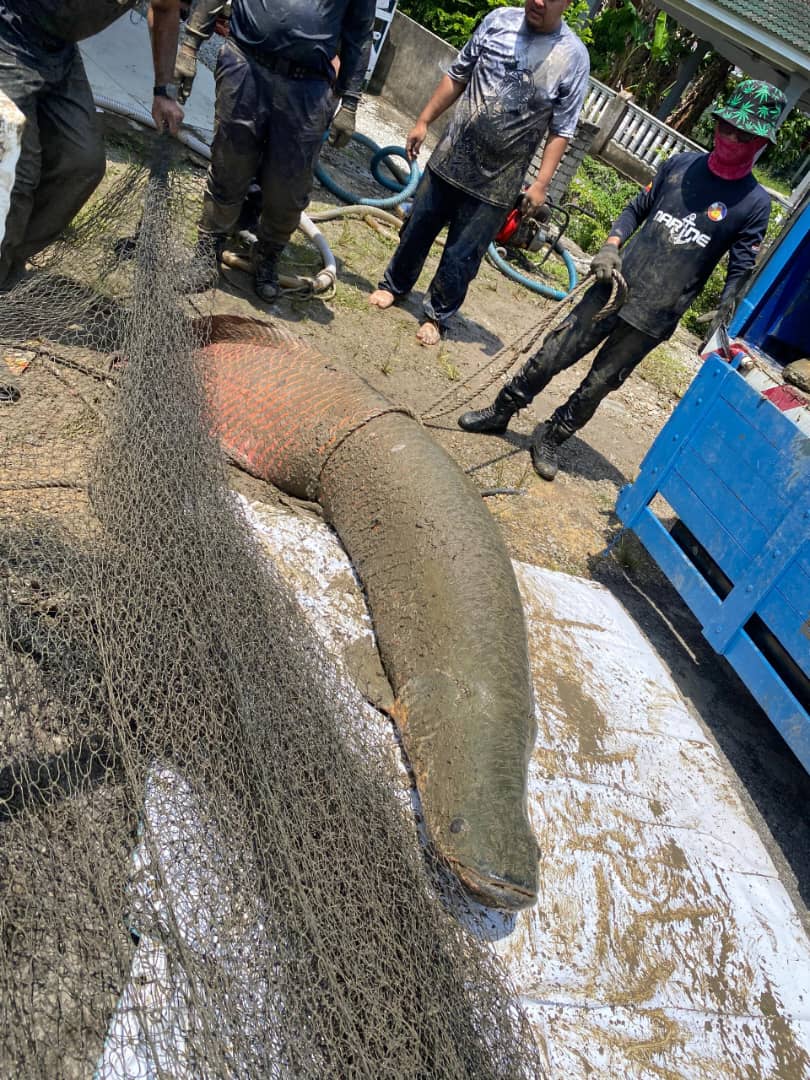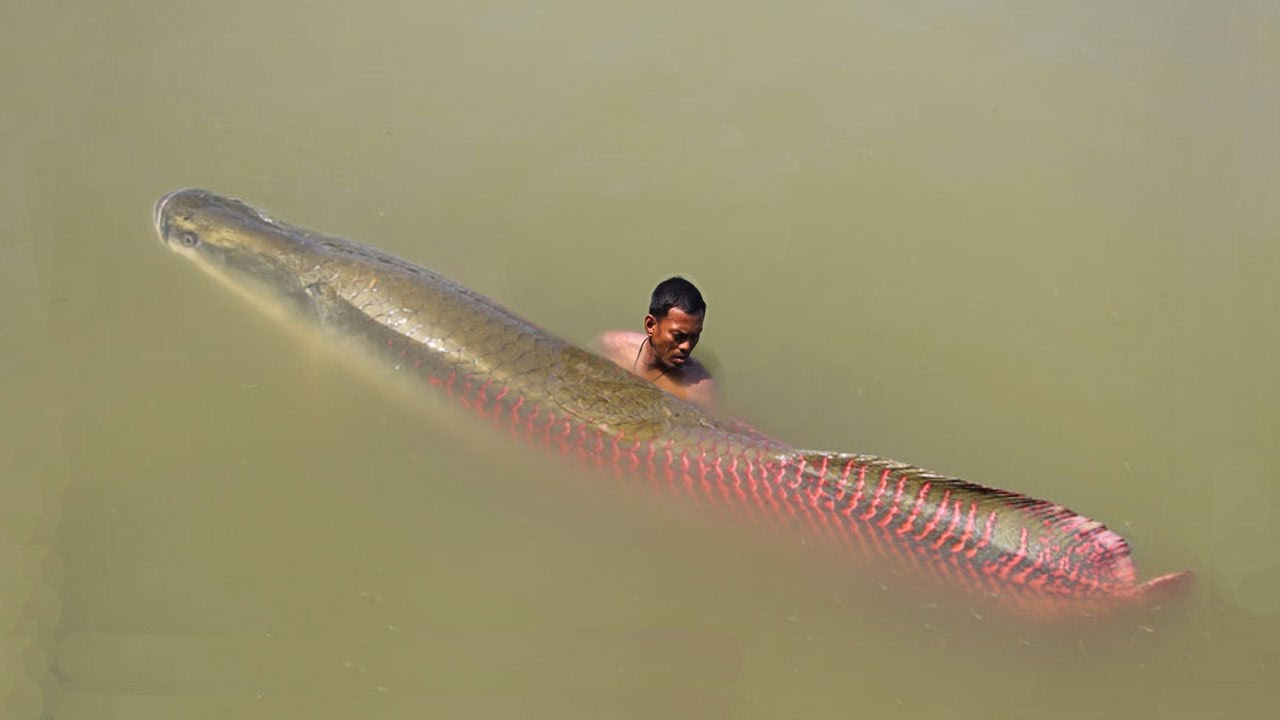Three Massive Arapaima Fish Caught In Melaka Die After Transfer To Zoo Negara
The fish weighed between 80 and 200kg and measured around 1.2 to 2.5m.
The three arapaima captured in Masjid Tanah, Melaka, have died shortly after their transfer to Zoo Negara
The invasive freshwater species, each weighing between 80 and 200kg and measuring 1.2 to 2.5m, were taken from their reservoir enclosure on Friday following public concerns about their impact on local biodiversity.
Melaka Fisheries Director, Saufi Affandi Talib, confirmed the deaths and announced that an autopsy would be conducted to determine the exact cause. The department plans to preserve the fish for educational and public awareness purposes following the post-mortem.
The capture of the fish last Friday made headlines when they injured five fisheries department officers
Fisheries Director-General, Adnan Hussain, reported that the men sustained injuries ranging from minor blows to the chest and knees to shortness of breath, reported FMT. The officers were treated at Alor Gajah Hospital.
The capture of the fish, which took over seven hours, was initiated in response to complaints from local residents worried about the arapaima's threat to the ecosystem.
The arapaima, native to the Amazon basin and known as one of the largest freshwater species in the world, had been illegally kept in a reservoir beneath an abandoned building. Fed by locals and patrons of a nearby restaurant, the owners voluntarily surrendered the fish after realising the legal restrictions against keeping them.
Arapaima have become a growing concern as invasive species in countries outside their native South American habitat
They have been found in regions like the Philippines, Singapore, and Thailand, raising fears about their potential disruption to local water ecosystems.
Despite the unfortunate deaths of these particular arapaima, the fisheries department hopes to use their remains to increase public awareness on the dangers of invasive species and promote responsible stewardship of local biodiversity.



